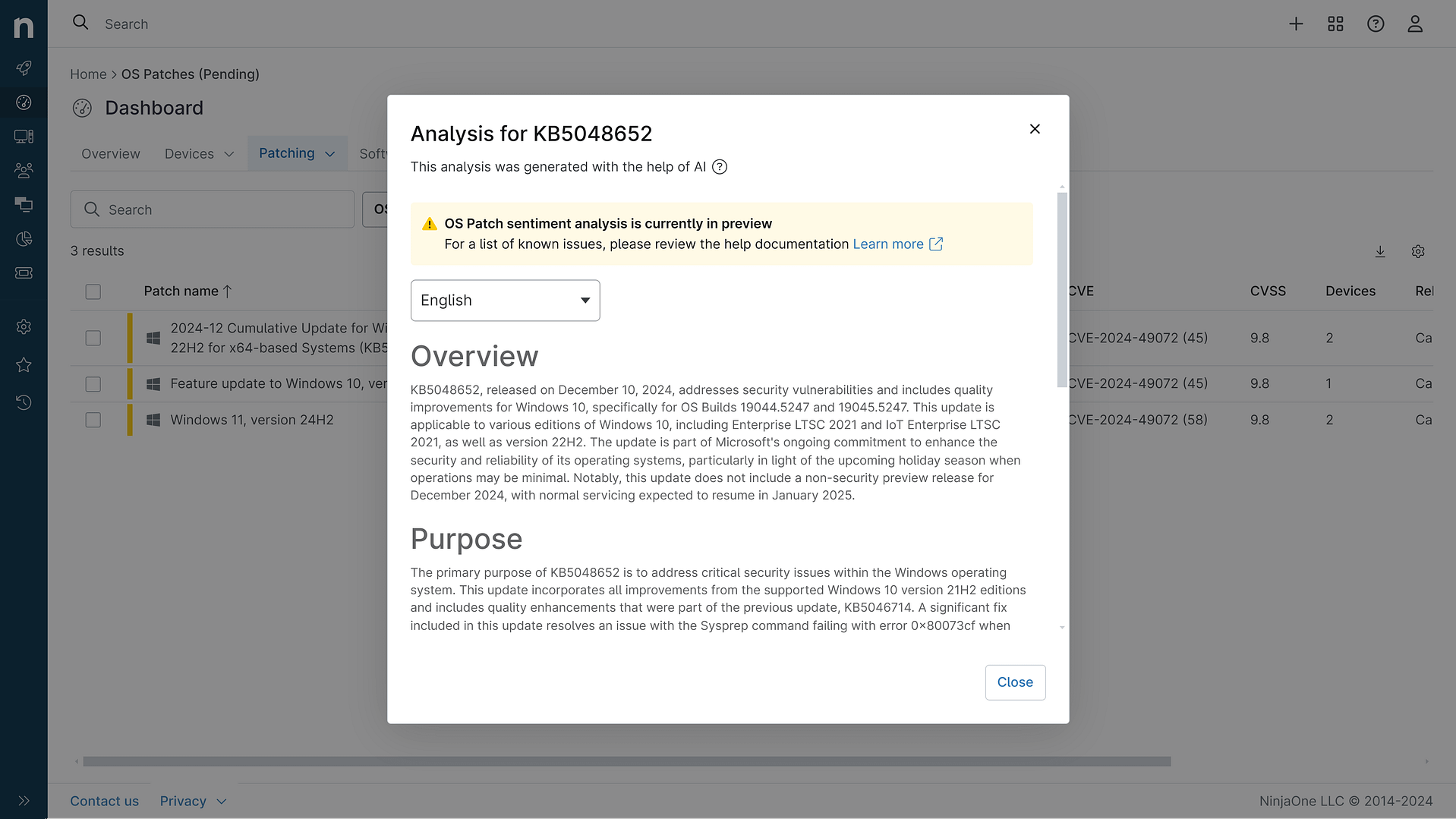KB5039888: Overview with user sentiment and feedback
Last Updated December 23, 2024
Probability of successful installation and continued operation of the machine
Overview
The KB5039888 update, released on July 9, 2024, is a Security and Quality Rollup for the .NET Framework 4.8 specifically targeting Windows Server 2012. This update is crucial for maintaining the security and reliability of applications built on the .NET Framework. It includes cumulative security improvements and reliability enhancements that are essential for the ongoing support of the framework. The update addresses a significant elevation of privilege vulnerability (CVE-2024-38081) that could allow an attacker to execute arbitrary code on the affected system. Therefore, applying this update is highly recommended as part of regular maintenance routines to ensure that systems remain secure and functional.
General Purpose
The primary purpose of KB5039888 is to enhance the security and reliability of the .NET Framework 4.8 on Windows Server 2012. This update includes a critical security fix for a remote code execution vulnerability identified as CVE-2024-38081, which could potentially allow unauthorized access to system resources. Additionally, it addresses quality improvements, particularly in WinForms, by resolving memory leak issues associated with AccessibleObjects. Users are advised to ensure that all prerequisite updates are installed before applying this patch to avoid any compatibility issues.
General Sentiment
The general sentiment surrounding KB5039888 appears to be cautious but ultimately positive. Users recognize the importance of security updates, especially those addressing critical vulnerabilities. However, there are concerns regarding the breaking changes introduced by the update, particularly related to the System.IO.Path.GetTempPath method. Some users have expressed frustration over the need to adapt existing applications to accommodate these changes. Overall, while the update is deemed necessary for security, the adjustments required may lead to temporary disruptions for some users.
Known Issues
- The update introduces breaking changes to the System.IO.Path.GetTempPath method, affecting how temporary paths are resolved.
- If the GetTempPath2 Win32 API is not available, the behavior of the GetTempPath method may differ between SYSTEM and non-SYSTEM processes.
- Users may need to implement code changes in affected applications to adapt to the new API behavior.
- A temporary workaround exists to opt-out of the security fix, but it is not recommended as it may expose systems to vulnerabilities.
Disclaimer: We take measures to ensure that AI-generated content is of the highest possible quality, but we cannot guarantee its accuracy and recommend that users do their own independent research. Generated on 2024-12-21 10:03 PM
